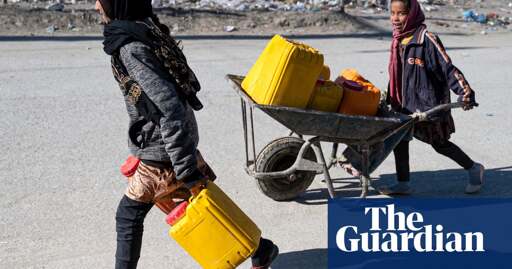Water levels within Kabul’s aquifers have dropped by up to 30 metres over the past decade owing to rapid urbanisation and climate breakdown, according to a report by the NGO Mercy Corps.
Meanwhile, almost half of the city’s boreholes – the primary source of drinking water for Kabul residents – have dried out. Water extraction currently exceeds the natural recharge rate by 44m cubic metres each year.
If these trends continue, all of Kabul’s aquifers will run dry as early as 2030, posing an existential threat to the city’s seven million inhabitants.



Bechtel or some form of Halliburton iirc. They couldn’t even manage to keep the water clean, either.